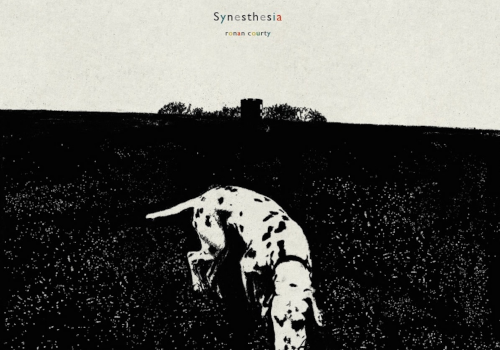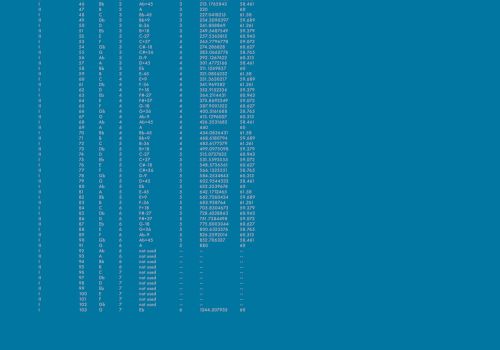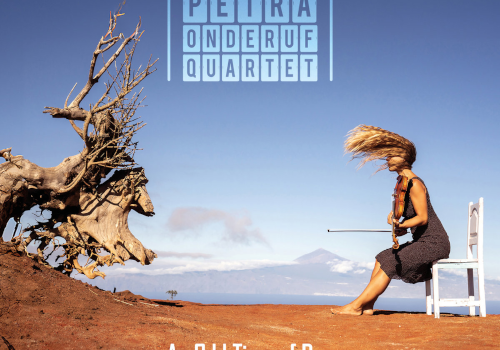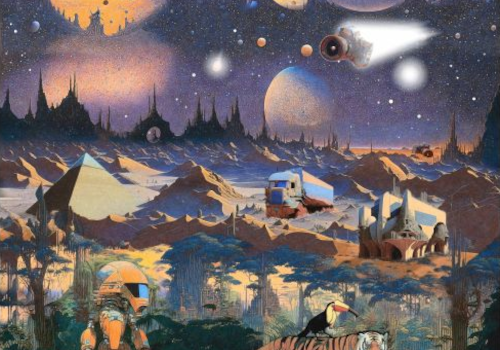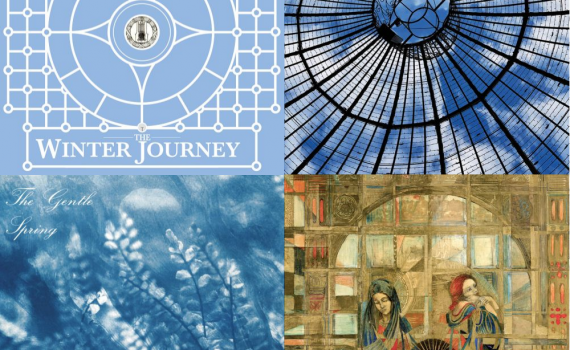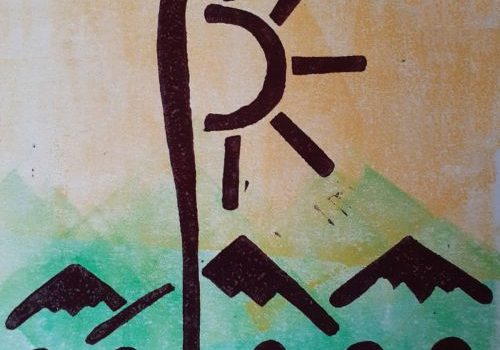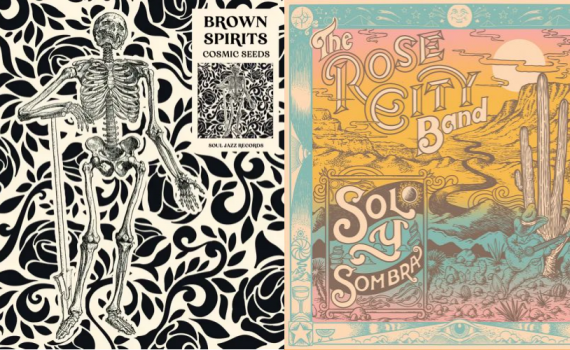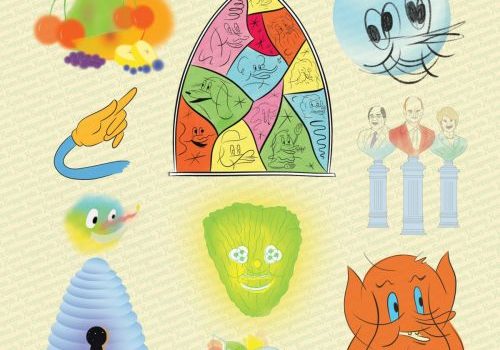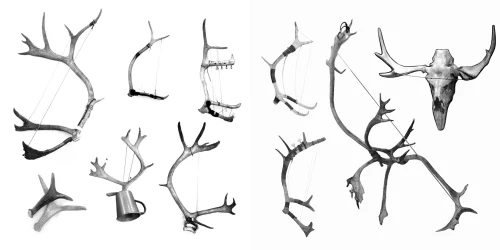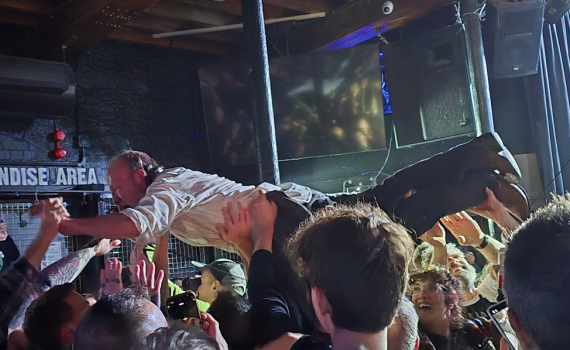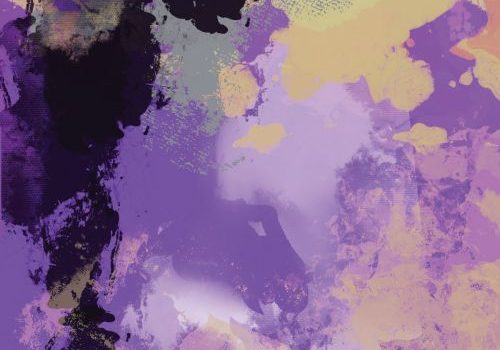Contrebassist Ronan Courty has been recording collaboratively for the best part of twenty years, but for this latest release he has gone solo and taken a violent approach to the instrument as a starting point to release hitherto undiscovered tones and vibrations from it. With two pieces coming in at over half an hour, it is a labour of love and one that puts the double bass thoroughly through its paces.
reviews
The thing with Greyfade releases is that they seem to oscillate around a few ideas -- small gestures (and I'd argue not minimalism), a clarity of sound, sparse but not abject tonal palettes. Typically the releases are fully composed -- this doesn't necessarily mean 'written out on the stave', but it does mean that the piece is liable to be the same next time you hear it performed.
Slovak violinist / composer Petra Onderuf's first solo album is an intriguing proposition. She has gathered around her what is essentially an adventurous jazz trio to bring life to her suite of well-travelled songs on An Odd Time Of Day.
Metropolis is an album of many shades and many influences, all pieced together and underscored with an ever-evolving set of rhythmic ideas. Describing it as "post-modern instrumental groove music", Marton -- along with Charley Rose on sax, Fabio Gouvea on guitar, Lorenzo Vitolo on Fender Rhodes and Jeremie Kruttl on bass -- takes the listener on a journey that may start somewhere familiar, but could end up in the back streets of Kinshasa or the favelas of Rio.
Milan four-piece Monteceneri has been recording since 2019 and Due is their first EP release, the group having previously recorded some standalone singles. Although released as an EP, the four tracks here come in at over thirty minutes and those lengths allow an atmosphere to be generated, usually on the back of the kind of intense, creeping bass line that puts you in mind of Massive Attack.
The never-ending flexibility of folk-framed idioms is undoubtedly one of the music world’s undervalued gifts, with there being near-infinite creative power in the union of pastoralism and open-minded songcraft, as the following four full-length releases contest.
This latest confection, all proceeds for which go toward Worldwide Cancer Research, possibly defines the term short but sweet. Actually, maybe sweet isn't quite the right word, because the amount of emotion and atmosphere that is generated in a little over seven minutes on Page Of Pentacles is quite simply extraordinary.
Always searching for intriguing collaborators, Stein has hooked up with electronic legend Ikue Mori as well as Hans Jorstad on violin, Siv Øyunn Kjenstad on percussion and Sam Gendel on sax and more electronics for a suite of tracks that take loose guitar meanderings and merge them with percussive textures and electronic elements for something pretty out of the ordinary.
Pulled back from obscurity by label honcho Alan Gubby, these choice selections from the long-defunct Arcadia Cosmos sound library excite, get in your head, inspire. Sounds that inhabit their titles and more, gift-wrapped in the spiky jiver of a monochromed power station.
Bleakness And Beauty In North Wales ... evokes the solitude and temporality of life in a series of beautifully rendered yet distant pieces. Travelling all the way to North Wales to enable this musical experience is part of his journey and it feeds into the chilly grandeur of the seven drone-based selections.
The Etienne Manchon Trio has been pushing its progressive take on jazz since 2018. This is their third album with the settled line-up of Etienne on piano and synths, Clement Daldosso on bass and Théo Moutou on percussion. On Weird Life, they take this opportunity to fully exploit their delightful interplay on ten Etienne originals and a run through Wayne Shorter's "Iris". Although they are nominally a jazz trio, a lot of other influences filter their way into the sound and it makes for an album that never settles, as it constantly searches for some fresh way of musically describing their relationship.
With 2025 already feeling somewhat weighed down with algorithmically-enhanced gloom, we’re undoubtedly going to need some sheer aural abandonment to get through the remaining pre-spring period… and indeed beyond. Enter then two new releases following divergent trajectories, aligned towards taking us away from it all.
Saxophonist James Mainwaring has teamed up with bassist Dave Kane and drummer Emil Karlsen, and as The Exu they have laid down twelve short shots in the arm that find the trio raking through their record collections and coming up with a suite that defies logic and sees them chasing whichever muse might briefly appear.
Instrumentation is almost entirely based on traditional folk instrumentation of the early mediæval period, some of which has been recreated based solely on visual and textual descriptions. Think of it as a kind of proto-folk combined with experimental archaeology. The vocals are almost entirely sung in Old Norse, but thankfully a translation of the lyrics is included. Birna is their sixth full album release.
JP Hasson's Hasco Enjoyments is a curious affair; an evocative desert-minded one-man operation that draws on friends and fellow travellers to flesh out his solitary vignettes. JP's main instruments are baritone guitar, synth and Wurlitzer, and their sparse, measured sound seems at odds with some of the titles; opener "It's OK To Put Ketchup On A Hot Dog, If That's What You Like To Eat" is a pastoral guitar strum accompanied by fluttering flute.
Hornorkesteret have been around more than a quarter of a century. What they do is to make instruments out of reindeer antlers and moose skulls. They are mostly bowed string instruments, though drums feature also (no word on what the skins are made out of on my press release). That description is flat and dry and gives no idea of what an awesome sound they make.
Bristol 10 January 2025 Support for The Jesus Lizard‘s eagerly awaited trip to The Fleece in Bristol came from that city’s own purveyors of mutant post-punk hip hop, Lice. Having not seen them since their extraordinary set at the Bristol Psych Fest back in the summer of 2017 where it was like The Beastie Boys fronting The Birthday Party. Since then, they seem to have picked up a […]
Split into six sections, Recording Rites starts as a progressive, surreptitious unfurling, the instruments gradually awakening into a half-light of squeals, brushes and percussive hints. You can sense the players swapping glances, offering opportunities, little tasters of what is to come.
